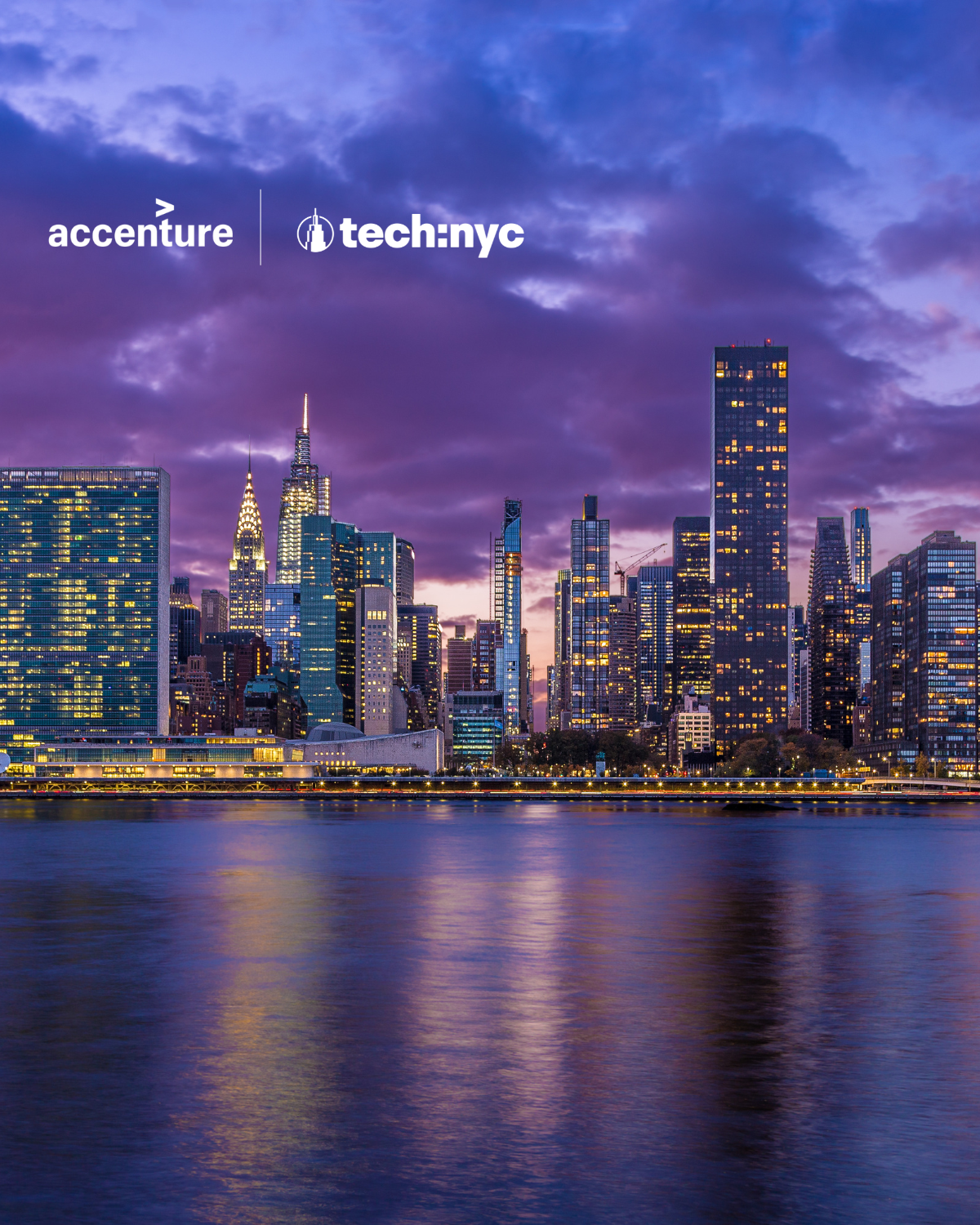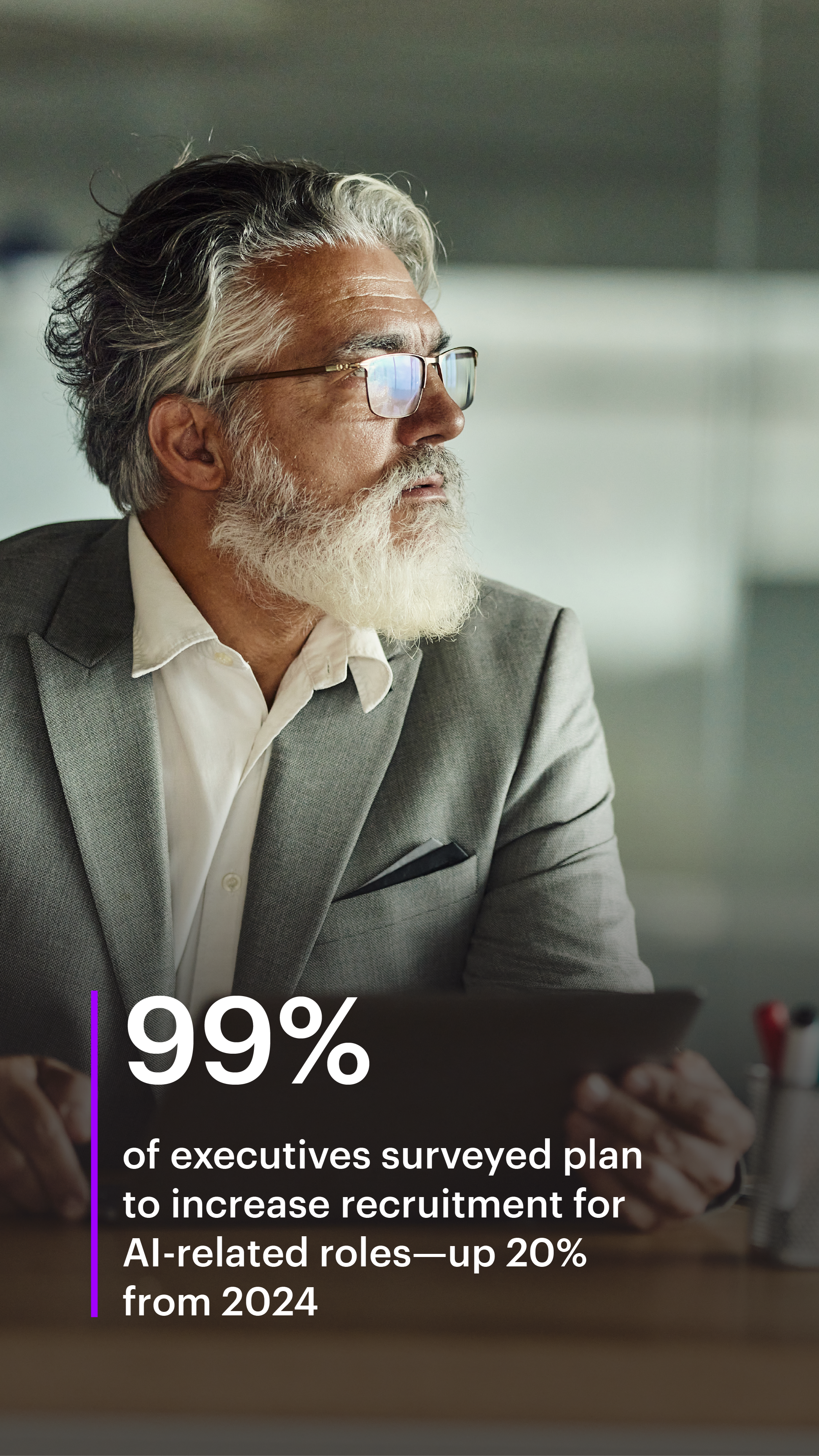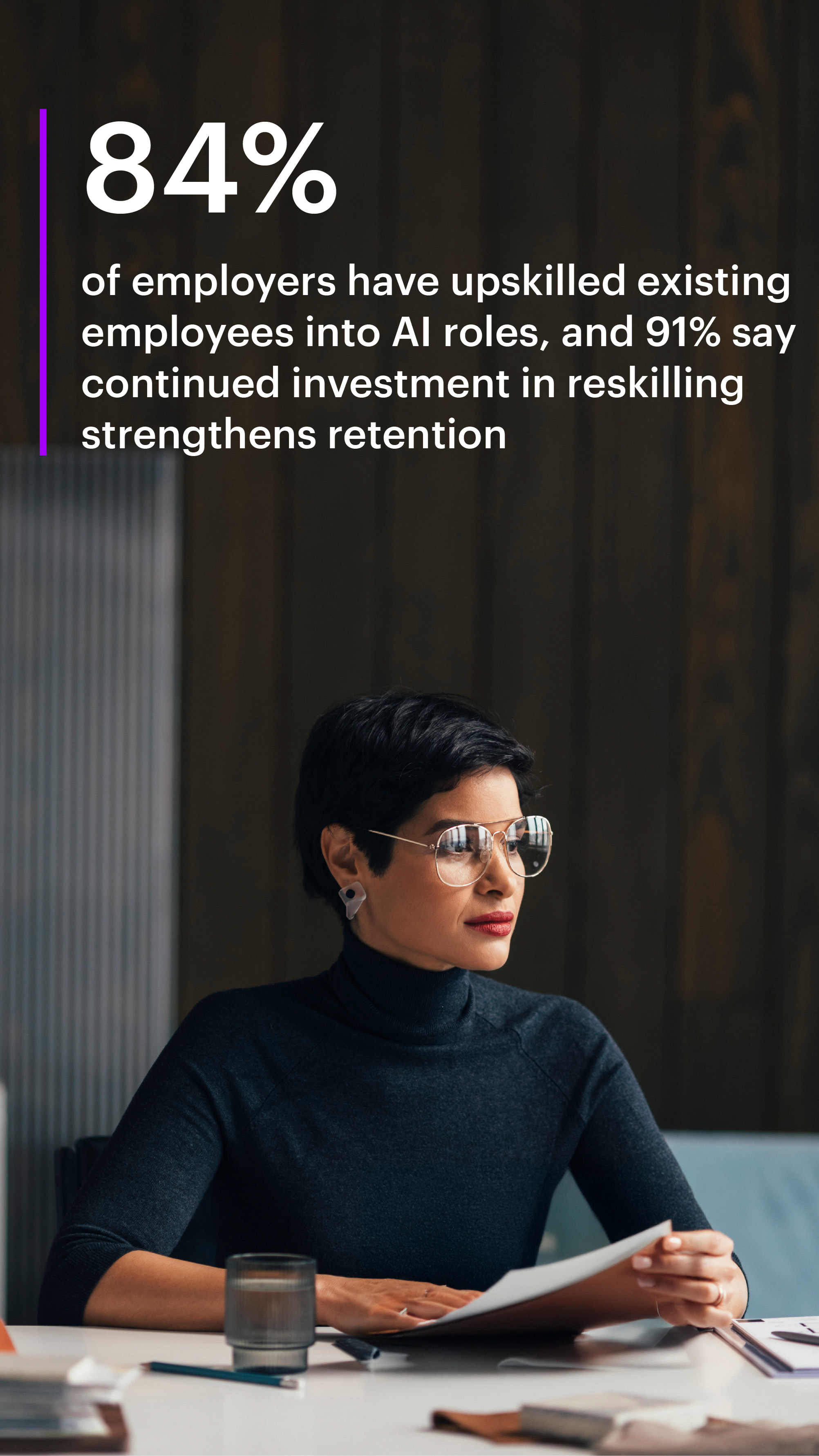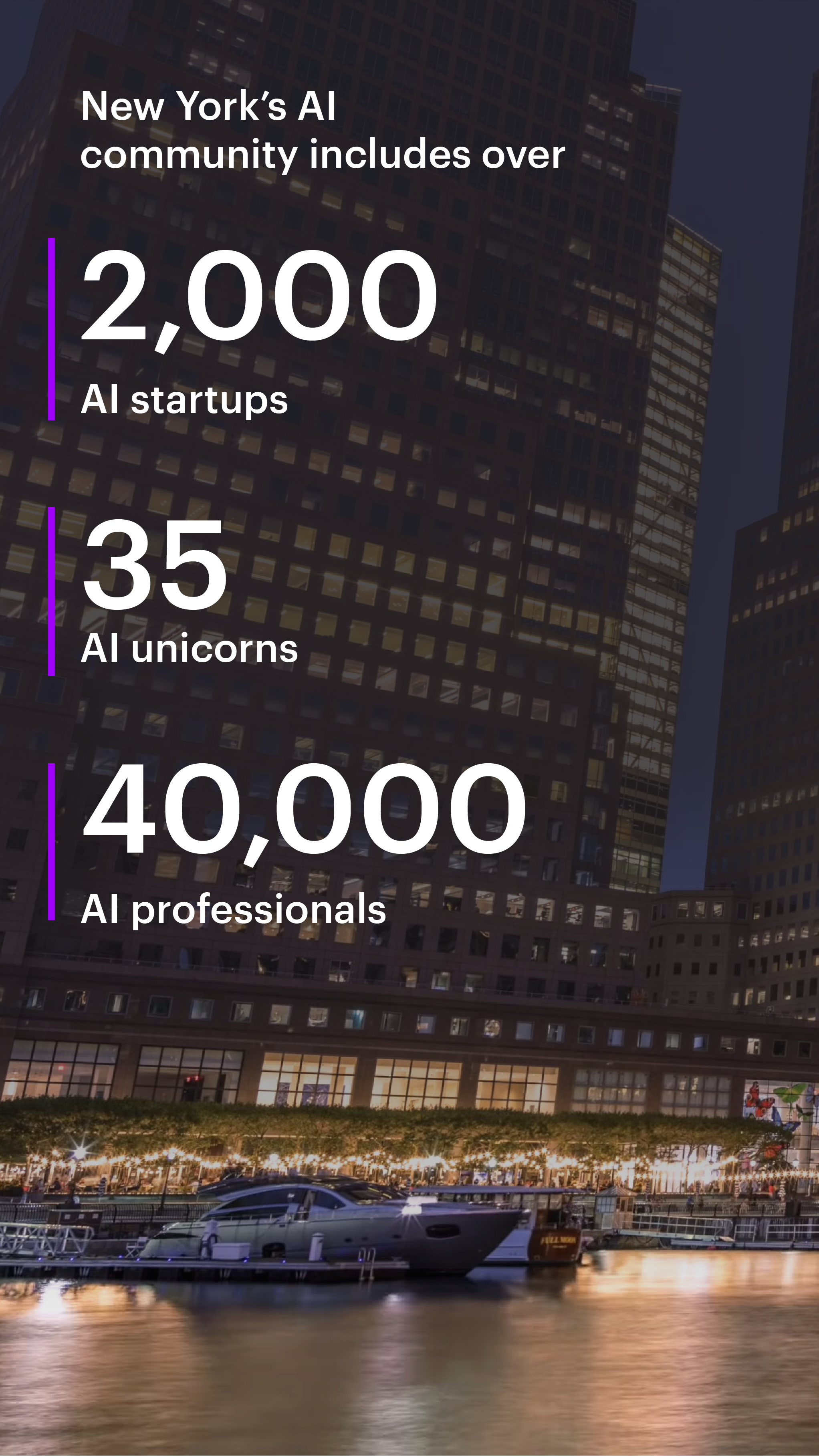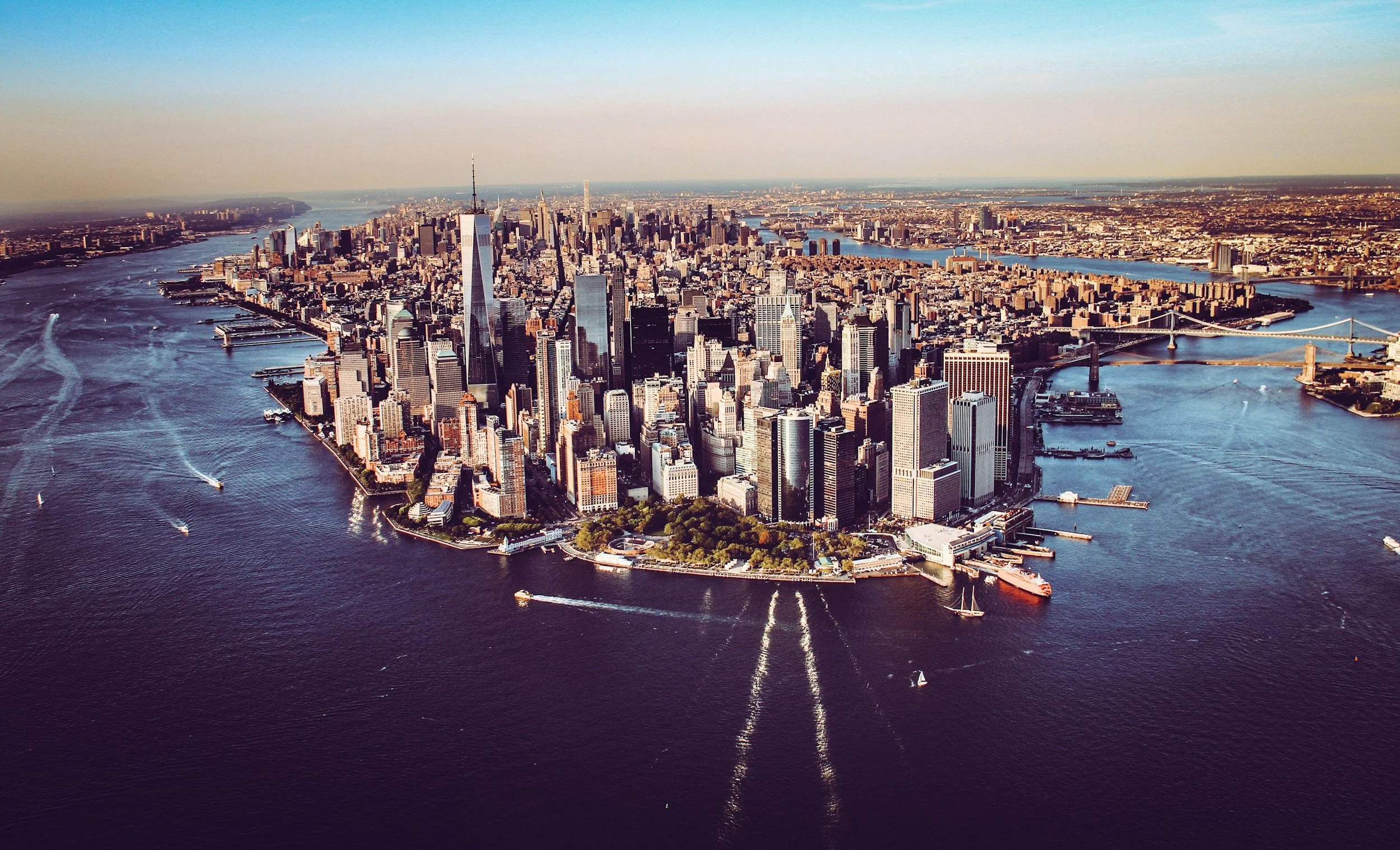Built to lead: New York’s momentum toward global leadership in applied AI
Why New York’s distinctive approach to collaboration and focus on talent gives it an edge — and how executives are positioning to take their work to scale
In Brief
New York is emerging as a global leader in applied AI, powered by our unique ecosystem, deep public-private coordination, and people-centered innovation.
A new report from Tech:NYC and Accenture shows explosive growth: job postings for AI roles in NYC are up 120%, executive optimism is soaring, and adoption is accelerating.
We revisit progress since 2024 and surface key insights on how AI is transforming New York and the growing opportunity for the region to shape the future of applied AI globally.
New York is a living lab for real-world AI implementation
Artificial intelligence (AI) has moved quickly from theory to practice and nowhere is this transformation more vivid than here in New York. AI is already helping leaders reshape industries, institutions and individual lives.
In the year since our 2024 survey, AI-related employment opportunities have grown at double the national rate. This, as almost all (99%) of the 500 executives who responded to our 2025 survey plan to increase their recruitment for AI-related roles (up 20% from last year).
Of course, as AI use expands, related challenges also arise and intensify. To help New York’s executives address these challenges and strengthen the city’s position as a leader in applied AI, this report codifies three broad areas leaders are focusing on to fortify AI’s positive effects and advance New York’s AI use with confidence:
Strengthening the city’s people-centered AI blueprint through job creation and upskilling that keeps pace with adoption.
Capturing the compounding value of its investments and ecosystem.
Ensuring the integration of a strong digital core and responsible AI into development and deployment as AI expands further into agentic and physical AI.
Strengthening New York’s people-centered AI blueprint
AI adoption surged from 55% to 78% in just one year. Demand for AI talent is accelerating faster than the national average, with job postings up 120% year-over-year and gen AI postings more than doubling. Top employers — including Amazon, Meta, Google, Bloomberg and JPMorganChase — are fueling the market, while hiring priorities blend technical and human-centered skills.
New York is focused on fortifying its talent pipeline. This growth is not confined to new talent; as noted, 84% of employers have upskilled existing employees into AI roles, and 91% say continued investment in reskilling strengthens retention. Employers like JPMorgan, Johnson & Johnson, and S&P Global are integrating generative AI into learning platforms and workflows.
A majority (62%) of executives also say that NYC's current upskilling and reskilling initiatives are leading the way in AI workforce development, preparing the workforce for AI-driven roles.
This confidence is reinforced by their strong sense of optimism, as 91% of executives believe NYC can maintain its leadership in AI by continuing to offer best-in-class training programs and education.
Public-private partnerships and open enrollment programs are providing accessible AI literacy and training across New York. At the K–12 level, NYC Public Schools are embedding AI fluency into classrooms through curriculum and policy innovation.
To stay ahead, New York executives will need to take a longer view, leading with a clear vision to reinvent work, reshape the workforce and prepare employees for a Gen AI-powered future by embracing skills-based management, hiring for potential and investing in broad-based AI upskilling.
Capturing the compounding value of its investments and ecosystem
New York’s early investments in AI were bold, decisive and inclusive — not just at the city and state level, but across industry, infrastructure, education and civic life. Most (92%) believe that AI investments made today will deliver measurable competitive advantage within three to five years, with sentiment strongest in health and financial services sectors. Now comes the more difficult phase: capturing the full value of those investments while navigating complexity, momentum and fast-following peers.
New York’s unique ecosystem is the central, vital component for future success. We’re already seeing these positive impacts play out. OpenAI’s recent expansion to New York emphasizes the importance of its AI ecosystem: the talent is here, the clients are here, and the infrastructure is evolving quickly to meet new demands.
As of early 2025, Empire AI has expanded to include ten leading research institutions across New York State. It is running at maximum capacity, with 85 research projects underway and more than 250 researchers granted access to the system to date. Executives overwhelmingly agree (91%) that stronger industry-academia collaboration is essential, and NYC is delivering on that with initiatives that pair startups with labs, faculty, and capital.
To turn investment into impact, New York executives will need to continue leading with value and intensify their efforts to connect AI adoption and deployment to outcomes. They will also need to expand their efforts to share what works. This means prioritizing bold, high-impact initiatives that tackle systemic challenges across key industries.
Frameworks to guide AI’s evolution and advances
Meaningful progress includes responsibility: As New York accelerates its AI journey, it’s critical that executives continue to prioritize safety and trust. Our survey results underscore this imperative:
61% of respondents viewed privacy challenges, including security issues and deepfakes, as AI’s biggest downside.
Nonetheless, 87% of executives agree the benefits of AI adoption far outweigh the risks for most businesses.
And the technologies’ evolution continues to astound. AI preceded gen AI; now agentic AI is emerging as systems capable of acting autonomously, proactively making decisions, taking actions and adapting to achieve specific goals.
Emerging technologies like Agentic and Physical AI are transforming how New York operates. From Visa’s Intelligent Commerce to Dataminr’s real-time threat agents, agentic AI is reshaping decision-making. Physical AI is already visible across city infrastructure — from drones aiding first responders to smart sensors monitoring transit and climate. The Brooklyn Navy Yard, Empire AI research partners, and the New York Robotics Network are powering this next wave, supported by robust youth engagement through programs like NYC FIRST Robotics.
Moving forward, New York’s leaders must embed trust, safety and security deep into their organizations, including their digital cores. Leaders can now focus on expanding from safeguards to standards to make sure that every deployment, from drones to digital services, is aligned with the commitment to safety, security and equity.
New York is not coasting on early success. The race to lead in AI is accelerating, and global competitors are gaining ground. Cities across the country — and the world — are emerging on the map to claim their share. In response, New York is leveraging its distinctive strengths — its talented people, commitment to collaboration, ability to move at a fast pace, and maintain strong principles — to stay at the forefront and shape best practices in AI leadership.
New York is positioned to lead
Lead authors
Julie Samuels
President and CEO
Tech:NYC
Laura Peterson
Americas Operations Lead and New York Metro Office Managing Director
Accenture
Davd Leckstein
Americas Technology Lead
Accenture
Joon-Seong Lee
Global Lead - Growth AI
Accenture
Jennifer Walden
Client Account Lead, State of New York
Accenture
Francis Hintermann
Global Managing Director Accenture Research
About the research
Accenture conducted a cross-industry survey of 500 C-level executives in NYC across 20 industries. The survey was fielded from March 2025 through April 2025 across the five NYC boroughs.
Survey insights were coupled with input from a curated group of industry experts. The team also gathered qualitative research to discover AI’s impact on several aspects of NYC and New York state’s economy. Topics included employment projections, AI use, applications and outlook in the New York metropolitan area, upskilling and development programs, and policy and regulatory development around responsible AI.
Corrine Vitolo
US Research Lead
Accenture Research

